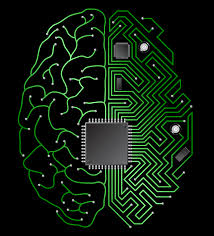cybernetics
英 [ˌsaɪ.bəˈnet.ɪks]
美 [ˌsaɪ.bɚˈnet̬.ɪks]
- n. 控制论
星级词汇:

记忆方法
记忆“cybernetics”的方法是分解这个单词的结构:“cyber-”是前缀,来源于希腊语,意味着“舵手”或“控制”,而“-etics”是后缀,表示“……学”或“……论”。结合这两个部分,可以记忆为“控制论”,即研究控制与通信理论的科学。
以上内容由AI生成, 仅供参考和借鉴
中文词源
cybernetics 控制论
来自希腊词语kybernetes, 引导者,管理者,词源同government.
英语词源
- cybernetics
-
cybernetics: [20] Cybernetics was first coined in French, as cybernétique, in the 1830s. But then it was used literally for the ‘art of governing’ (it is a derivative of Greek kubernétēs ‘steersman, governor’, from kubernan ‘steer’, source of English govern). The English term, ‘theory of control and communication processes’, is a new formation, introduced in the late 1940s by the founder of cybernetics, the US mathematician Norbert Wiener (1894–1964).
=> govern - cybernetics (n.)
- coined 1948 by U.S. mathematician Norbert Wiener (1894-1964) from Greek kybernetes "steersman" (metaphorically "guide, governor") + -ics; perhaps based on 1830s French cybernétique "the art of governing."
The future offers very little hope for those who expect that our new mechanical slaves will offer us a world in which we may rest from thinking. Help us they may, but at the cost of supreme demands upon our honesty and our intelligence. [Norbert Wiener, "God and Golem, Inc.," 1964]
权威例句
- 1. To achieve this, researchers have drawn upon cybernetics.
- 为了这一目的, 研究人员引用了控制论.
- 2. Always an interdisciplinary subject, cybernetics was seen by its founding fathers moreover as transdisciplinary.
- 控制论始终是一个涉及多种学科的课题, 它的创始人都认为它是跨学科的.
- 3. This paper considers system theory , information theory and cybernetics as pole stars.
- 本文以系统论 、 信息论、控制论作为整个研究工作的指导思想.
- 4. The paper considers system theory , information theory and cybernetics as pole star.
- 本文以系统论 、 信息论和控制论作为整个研究工作的指导思想.
- 5. Cybernetics was a victim of batch - mode computing.
- 控制论是批处理计算模式的受害者.